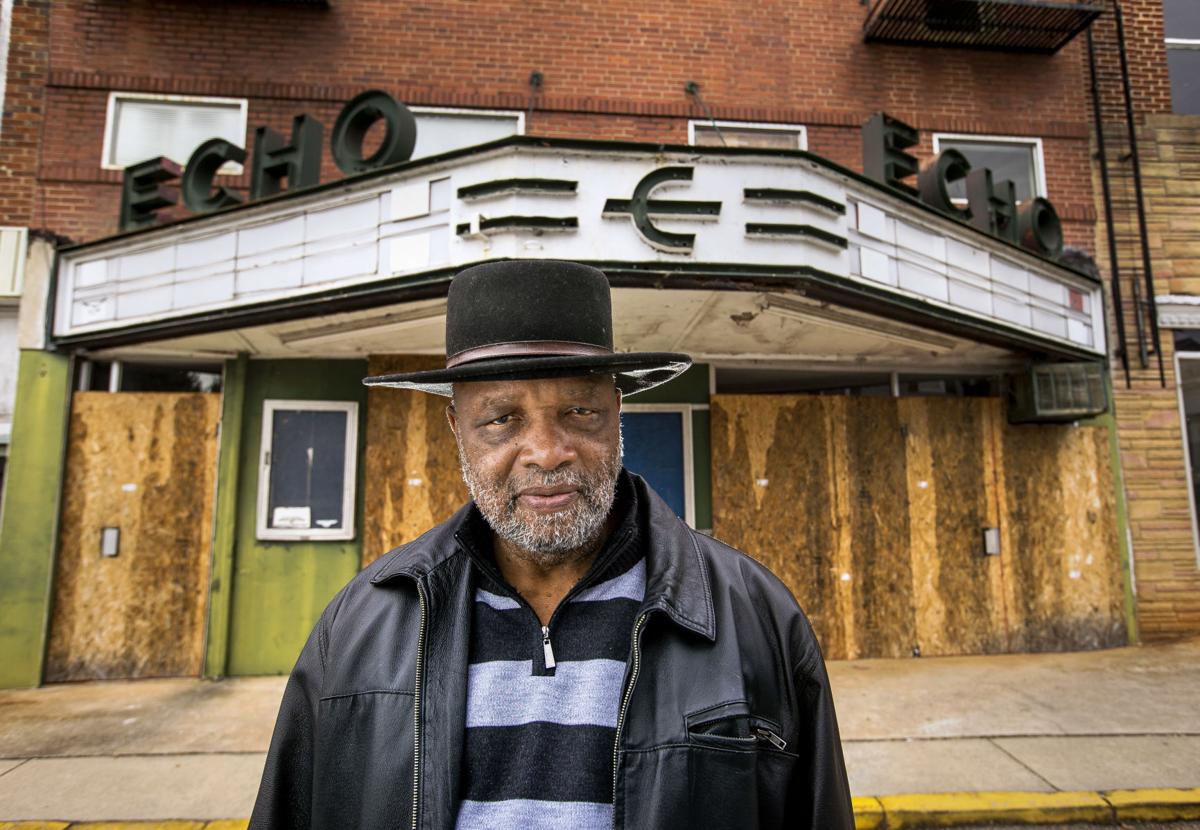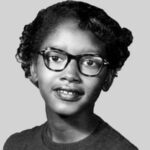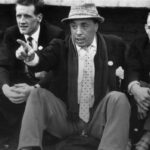In 1996, an African-American reverend called David Kennedy faced one of his biggest fights. A new shop had sprung up in Laurens, his small town in South Carolina, selling white supremacist memorabilia and housing a Ku Klux Klan museum.
It was called the Redneck Shop and Reverend David Kennedy knew he had to stand up to the racist owners. At first he simply stood outside in protest, but later he was able to start changing the mind of one of the managers, Mike, having helped him in a time of need.
The two men became close, and through their friendship the reverend ultimately gained control of the white supremacist shop.
This is the story of how a black baptist minister bought Mike Burden’s Redneck Shop in Laurens, South Carolina.
The city of Lawrence is known as a racist city among African-Americans who live there. Named after a 19th-century slave trader, Henry Laurens, who owned over 4,000 slaves, Henry Lawrence’s history left a legacy of racism behind till today.
David Kennedy grew up during the Jim Crow era of racial segregation. That’s when white people lived on one side of the city and black people on the other side.
“When you walked on the sidewalk and a white person was coming towards you had to step off the sidewalk and let them pass,” he said. If you didn’t do that, “you could be severely beaten and you’d have no recourse. They could do anything they wanted to do to you.”
“I was roughed up sometimes by the police and I was arrested several times. But some of my friends were killed.”
One of the other factors in all this, in Laurens when David Kennedy was growing up, was the Ku Klux Klan.
“You learn early about the Ku Klux Klan and you learn most of it from sometimes watching them getting together to march. Most of the stories come from older people.”
“My grandfather said when they got ready to march the streets to intimidate residents, he had to put a black cloth over the windows to make it appear that no one was home.”
As a child David was painfully aware of how long standing this discrimination was. Nowadays he has a photo hanging on the wall of his office of a man called Richard Puckett. Richard was his great great uncle and in 1913 when he was arrested accused of attacking a white woman he denied it and was never identified by the woman but news of the alleged crime travelled and a large crowd of people had gathered at the jail. They took Richard Puckett, tied a rope around his neck and took him to a bridge to serve justice on behalf of the woman. According to David Kennedy, the rope remained at the site till 1985.
“It was very disturbing, traumatizing. I was always angry about why they did that to an innocent person. I was angry at the mob, I was angry at the law and I was angry at my own bloodline and other people in the community because they allowed this to happen.”
In his adult life, David Kennedy made a decision to become a pastor. Not only on a mission to introduce the Christian faith to people was he, but also to equip African-Americans in his city to fight against racism and injustice.
“I had a different mind and understanding of Jesus Christ. I wanted to train people how to stand up for their rights and demand justice. Among African-Americans I saw too much fear where we learned in church about the bravery and courage of the biblical characters.”
He felt that the church was a way to inspire African-Americans living in Laurens to stand up for their rights.
“I wanted African-Americans to feel their worth. You have to be able to participate in carving your destiny.”
In 1996, David Kennedy and his congregation faced one of their biggest fights. A new shop sprung up in Laurens; housed in the old movie theatre. It was called the Redneck shop and it sold white supremacist memorabilia and also housed a Ku Klux Klan museum.

“I was angry and asked how did the city of Laurens allow this to happen in the heart of the city,” Kennedy said.
One item in the shop that was on sale was a black dog with a rope around its neck. This suggested that black people should be lynched.
“They sold t-shirts with a little white boy urinating on a little black boy, they had all kinds of KKK robes with the confederate, nazi flags and symbols of hate, revealing white superiority.”
The presence of the shop made tensions grow high between white people and black people in Laurens and David Kennedy wasn’t the only one on the frontline.
“I went to the shop several times and each time I went in they would call the police on me. Young black boys planned to burn the shop down but I knew if I hadn’t done anything they would have done just that.”
Alternatively he decided to stand in front of the shop to protest, encourage members from the community to vent their frustrations and their anger.
“I had to make sure that their voices of the unheard were heard.”
The owner of the shop was Jon Howard. He was a former leader of the local KKK who’d taken a young man called Mike Burden under his wing. Mike then joined the klan and became a prominent member himself and by the time the shop opened, he lived in the apartment above it with his young family. Mike stood to inherit the Redneck shop from Jon who’d become a father figure to him. So as Reverend Kennedy’s protest continued, Mike was on the other side of the battle line.
Days went by as both stood their ground. The Reverend David Kennedy outside the shop protesting, and Mike Burden on the inside masked with a particular look on his face. One day the two had their first conversation.
“I was on my way to the police department to help a black fellow who was unjustly charged by the police and when I went to the police, he was in a truck with his wife-to-be and his two children.”
“Reverend David Kennedy!” Mike Burden yelled.
“We’ve been kicked out of our place of residence and we don’t have anywhere to go. No one is willing to help us,” Mike said to David.
“If you’re here when I come out, I’m going to make sure you have shelter and you have food.”
At the time this happened, David knew very little about Mike Burden and his family. All he knew was that Mike was the man who manned the Redneck Shop that sold horrendous racist memorabilia and now previously occupied the flat above. But he says, it was the right thing to do.
“I didn’t have time to think whether or not it was the right thing to do. I had to help him and you don’t hesitate to do God’s will when a human being is living in misery.”
Eventually Mike told David why he’d been kicked out of his apartment. He had fallen in love with Judy, his wife-to-be who gave him an ultimatum to leave the klan or leave her because she could not envision a future shared with an organisation such as the KKK. He chose to be with Judy.
Choosing Judy though meant he’d leave the klansmen and leaving them behind isn’t ever an option. They would kill him if his life was made available, according to David Kennedy.
When it came to helping Mike, Judy and the children, Reverend Kennedy turned to his church. He talked with his deacon and members of the church for shelter and food to be provided and anything they could spare at home that was needed for a house.
Mike and his family even joined the predominantly black church and this former klansman and African-American minister started getting close. But there was still something Mike hadn’t revealed.
“I remember one day, Mike, Judy, the kids were over at the church everyday. We started bonding and Judy said on one occasion to Mike, ‘if you’re going to have a future with me, you have to tell reverend Kennedy the whole truth, Michael. He has been too good to us. She told him to tell me everything.”
The secret Judy said Mike should reveal to Reverend Kennedy was that he had been given a gun to kill David Kennedy.
Mike Burden was given a gun to kill David Kennedy.
Mike had taken the gun and started following Reverend Kennedy’s movements looking for the right opportunity to strike. Mike told David about one time, he almost had an opportunity to shoot him.
“He said he had his finger on the trigger, preparing to shoot and then some people came around and I think that’s why he hesitated.”
“I think they wanted to kill me because I am a black man standing against the klan.
Though his actions proved threatening, Reverend Kenedy said it didn’t make him feel hate towards Mike but rather, “it made me love him more. I knew he needed me.”
Mike knew that he had the remaining part of the building, which was the shop, and he wanted to sell it because his family needed money badly. He told the reverend that he wanted the church to have it because David had been so good to Mike.
“I told him nobody in Laurens wanted to purchase it. But he stayed on me everyday, begging me to take it from him.”
David Kennedy then saw an opportunity in the new turn of events. He thought that if he bought it, then no other klansman could have it because it became blackowned – achieving the reverend’s personal goal for the community to get rid of the shop and wipe its existence.
So David Kennedy bought it from Mike Burden for $1,000. “We wanted to turn the building into a multi-cultural centre; a place for all races, a place to build self-worth and grow and a place for skill training.”
Mike Burden on the other hand, left the church, returned to the KKK and even got into trouble with the law. This left David Kennedy in turmoil.
“I felt like maybe there was something else I should have done but didn’t do. I didn’t blame Mike, I blame myself. I felt like I neglected him but I did catch up with him.”
Mike Burden served time in prison and Mike changed his mind about the building. When it was time to bring the multicultural vision to life, Mike said he never sold it to the Reverend. The matter ended up in court.
“We didn’t want to lose the building because we had a dream and so we wanted that dream to start materialising. When you go to court as a black man and a preacher, the odds are against you. It’s stressful but the evidence was enough and the jury ruled in our favour,” Kennedy said.














